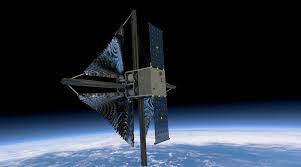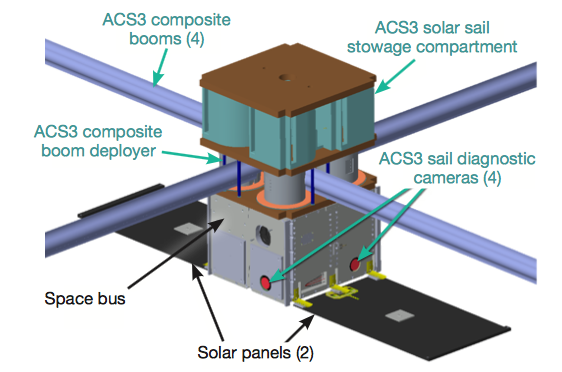Rocket Lab will help NASA with satellite launch using SBIR award
30th Oct 2021
Recent Rocket Lab progress and new project with NASA
A new project partnering Rocket Lab with NASA is being developed, focusing on launching the Composite Solar Sail System (ACS3). The purpose of the satellite is to test structures and materials technologies that are deployable. These technologies are crucial to the solar sail propulsion systems, a gateway for solar-powered deep space missions.
The satellite, or ACS3, utilises composite materials in its demonstration. These are a composition of materials of varying properties. Novel lightweight booms will deploy from the satellite to support the solar sail system.
The company was called after being selected by NASA on 6th October 2021. It’s one of the leading space industry enterprises majoring in launch services and space systems. It will use its Electron vehicle to deploy the satellite.
It’s a similar concept to how a sailboat operates. The boat’s sails are powered by wind. Solar sails will require the sun’s energy for propulsion. When that happens, there won’t be any more need to rely on rocket fuel.
What do we know about Composite Solar Sail System

The ACS3 mission will launch in New Zealand in the middle of 2022. During the “kick stage” of the mission, the rocket will deploy a series of payloads together with the ACS3. Being part of a ride-share won’t affect the rocket’s ability to deliver all payloads, which is the main factor the company was chosen for the mission. The NASA satellite will operate at a higher altitude than other payloads on the same mission.
Not much is known about the contract’s value as of yet. Rocket Lab hasn’t mentioned how much it is worth, but the company experienced soaring share prices as a result of this partnership, increasing up to 10% in October this year.
Once the ACS3 is in position, NASA will get a chance to collect vital data which it can use to scale up the project. Future composite systems can be bigger once this demonstration illustrates ways to make improvements.
Venture class launches
NASA has recently been going for more of a consolidated approach to aerospace exploration, creating “venture class” services. They are looking to create more rideshare services in partnership with other organisations. The mission we’ve described, and others, will work towards NASA’s plan of launching many smallsats into space. All of these satellite launch missions will be licensed by the Federal Aviation Administration.
Looks like Rocket Lab is very active nowadays
Other than these developments, Rocket Lab, which has previously been on hold because of coronavirus restrictions in New Zealand, announced that it will be launching two other separate missions by November. These missions will carry two BlackSky satellites, for geospatial intelligence. This certainly is a year for space exploration, with Rocket Lab and dozens of companies like it conducting satellite launch missions all over the world.






Thank you for your comment! It will be visible on the site after moderation.